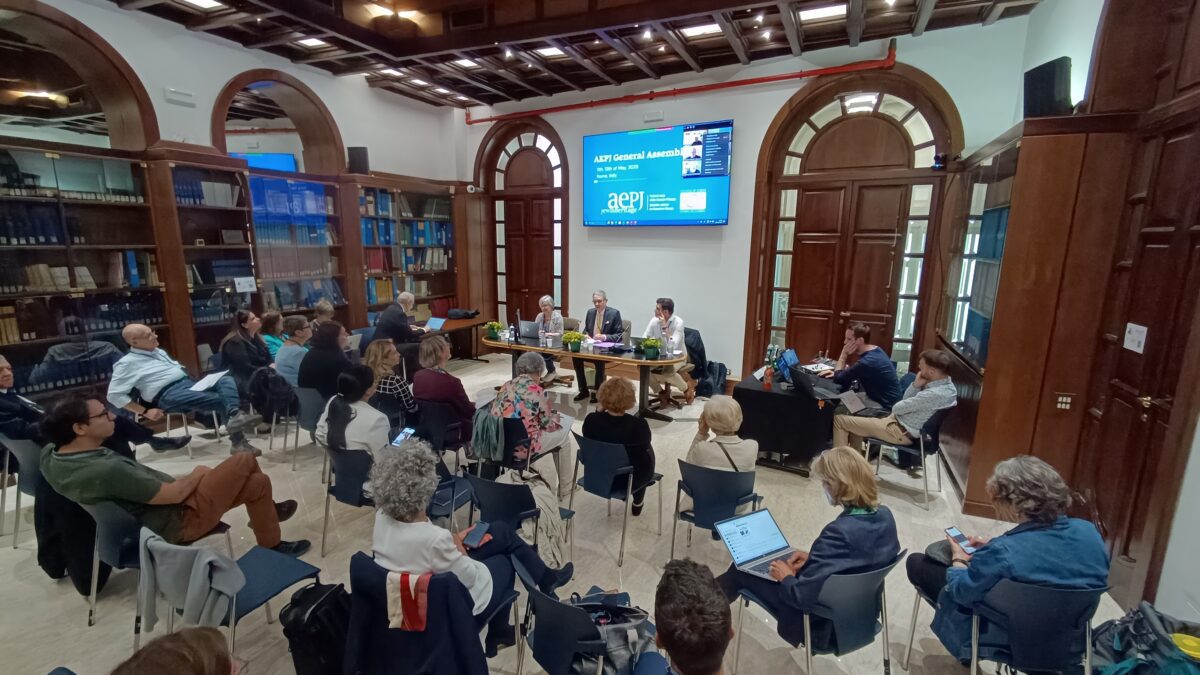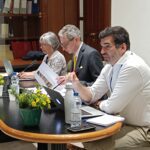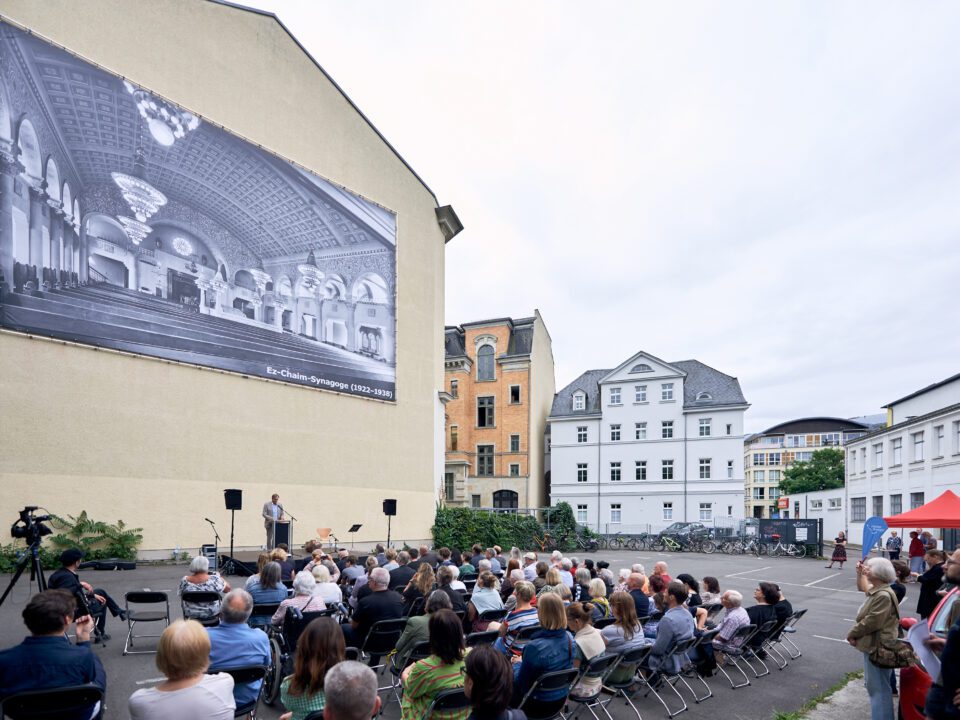A new chapter for AEPJ at the General Assembly 2025


The 2025 General Assembly of the AEPJ was held in Rome on May 11 and 12, gathering representatives from over 15 countries across Europe. The meeting marked a new chapter for the organisation, reflecting both its continued growth and the strong commitment of its network to preserving and promoting Jewish heritage.
Hosted by the Union of Italian Jewish Communities (UCEI), the Assembly featured a rich and fruitful programme. Strategic priorities were approved for the coming years, including the continued development of AEPJ’s two flagship initiatives, the European Days of Jewish Culture and the European Routes of Jewish Heritage, with a strong focus on partnerships, outreach and structural improvements. AEPJ also presented its 2026–2030 strategic roadmap for the Routes, reaffirming its role within the Cultural Routes of the Council of Europe.
The Assembly also reviewed the current portfolio of European-funded projects. These included Mi Dor Le Dor Europe, which is building a transnational network of Jewish heritage educators; NextRoutes, focused on innovation and gamification in heritage tourism; NOA 2, a project dedicated to combating antisemitism; Thrive, which aims to establish an intangible Jewish heritage hub; and European Memory Data Space Blueprint, a visionary initiative for Holocaust-related digital memory. Additional project proposals are currently under development under Creative Europe, Erasmus+, and CERV.
The AEPJ statutes were also revised and approved, providing a more agile and transparent governance framework. The Assembly included a symbolic endorsement ceremony of the NOA Guidelines for Fostering Jewish Life, underlining the network’s shared values and commitments.
The new AEPJ Board for 2025–2028 was elected:
- François Moyse (President, Individual Member)
- Caroline Lambert (Vice-President, Individual Member)
- Noemi Di Segni (Secretary General, UCEI – Italy)
- Patrick Bikard (Treasurer, Individual Member)
- Claudia de Benedetti (Individual Member)
- Assumpció Hosta (Individual Member)
- Dita Kiriaty (Kiriaty Foundation, Israel)
- Alfred Lang (Research Society Burgenland, Austria)
- Helise Lieberman (Taube Center, Poland)
- Taly Mair (Jewish Community of Athens, Greece)
- Karin Szcech (City of Erfurt, Germany)
In this new stage, two of the AEPJ’s founders will continue to accompany the network: Claude Bloch will remain as Honorary President, and Annie Sacerdoti will continue as advisor to the Board.
As part of the broader agenda, at the Italian Ministry of Culture, a formal cooperation protocol was signed between the Ministry and the UCEI. The agreement lays the foundation for the restoration of the historic Jewish Cemetery of Pisa, a site of extraordinary cultural significance.
The Assembly also included moments of cultural connection and exchange: a dinner with institutional representatives, a visit to the Jewish catacombs of Rome, and the first working session of the new Board. These encounters reaffirmed AEPJ’s mission to connect communities, foster dialogue, and bring Jewish heritage to life across Europe.









